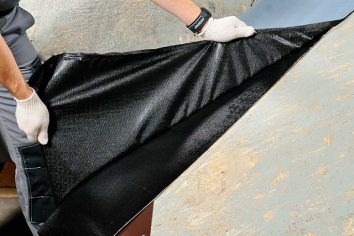
Home warranty coverage provides peace of mind knowing your appliances and systems will be repaired or replaced should they break down, but it’s essential to understand all contract details, exclusions and limitations prior to purchasing one.
With the appropriate insurance in place, managing unexpected costs becomes simpler and your emergency funds don’t dwindle as rapidly. Here are some tips to help you select a home warranty policy best suited to your needs. Just make sure to learn about the fact there are different approaches to home warranty definition real estate. Get familiar with that too.
Cost

Home warranties can cost more than simply paying for repairs yourself out of pocket, but they typically pay for themselves over time. Should an appliance or system breakdown, your warranty company should send out a qualified contractor to repair it for you.
An insurance provider’s premium, service call fees and add-ons all factor in when calculating how much it costs to use their service. Most home warranty providers require deductible payments or price limits on specific items as part of the agreement.
Consider selecting a provider with a contract containing clearly laid out terms, conditions, clauses and exclusions that is readily available on its website as this will allow you to avoid unexpected hidden charges such as those for accessing plumbing systems under concrete floors or behind solid walls, or adapting new equipment to work with existing systems. The ideal home warranty providers offer high payout limits with flexible claims payment procedures as well as excellent customer support services.
Coverage
Home warranties provide homeowners with coverage against appliance and system repairs caused by normal wear and tear, providing an alternative solution if they lack the savings or energy to pay out-of-pocket for the necessary repairs themselves.
Different home warranty companies provide differing plans and coverage options, so consumers should carefully examine what is included before making their decision. A clear contract should contain terms, conditions and exclusions for optimal decision making.
Priority Home Warranty offers clients 24/7 service through their dedicated call center or online portal, making scheduling service calls a simple process. They even feature an easy online claim process so homeowners can keep track of their claims from start to finish!
Home buyers should also explore optional upgrades or add-ons that enhance standard coverage, such as extra plumbing coverage (to protect pipes encased in concrete and exterior leaks), outdoor kitchens and septic systems. Such additions help ensure their warranty adequately covers any major issues that might arise during ownership.
Exclusions
Home warranties do not cover all repairs or replacements, and may include exclusions and extra fees. It is important to carefully read your contract and seek clarification if there is anything unclear regarding coverage. It is also recommended to select a provider with a good reputation, comprehensive options selection, and competitive prices.
Home warranty companies do not cover components that have experienced normal wear and tear or are damaged in an accident, nor surface or cosmetic issues such as nicks and scratches on appliances. Furthermore, they typically do not cover systems or appliances found to have improper maintenance practices in place during inspection.
Before purchasing a house, it is a smart idea to have an inspector walk through it to identify any existing issues and save on repair costs by knowing exactly what has already been identified as issues. Doing this may prevent unexpected claims denials while saving on repair expenses.
Repairs

Checkbook has observed that many warranty providers provide additional add-on options that provide greater appliance and system coverage at an additional cost, typically paying off quickly in terms of covering repair costs you would otherwise be forced to bear without one.
Some companies impose a waiting period before you can file a claim, while others exempt preexisting conditions or wear and tear from coverage. A reliable company’s contract should clearly outline these details.
Most warranty companies work with professional contractors for repairs covered under their contracts, yet can charge higher-than-average service call fees and have deductibles you must meet. By choosing a plan with high annual coverage limits instead, however, you could reduce how often emergency savings funds must be used for home or appliance repair or replacement.
Loading recommendations...





Many of our Papa’s games can now be played without flash. They are some of the most exciting management games you can find anywhere.
Thanks for sharing this, this is amazing.